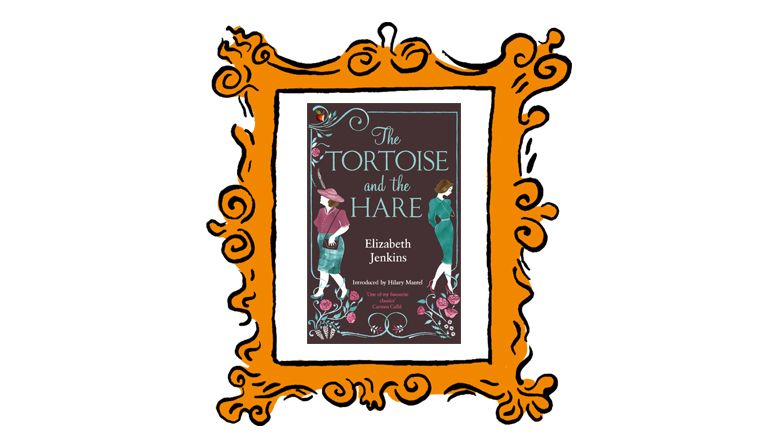A few years ago, I picked up The Tortoise and the Hare, Elizabeth Jenkins’s classic 1954 novel, and swiftly abandoned all professional and family responsibilities until I had finished it. Tortoise is a quiet knockout, a why-haven’t-I-heard-of-this-before classic. If you haven’t read it yourself, turn off your phone and tell your partner, children, pets and flatmates to fend for themselves.
This month—tomorrow, in fact—is Tortoise’s 70th anniversary. It was a hit in 1954, and, after it was republished in the 1980s by Virago Books (which itself turned 50 last year), it has been repeatedly reprinted.
Jenkins was a respected writer in her time. She won the Femina Vie Heureuse prize in 1935 (beating Evelyn Waugh) and was much praised for her biographies of Austen and Elizabeth I. To her friend Elizabeth Bowen, Jenkins was “among the most distinguished living English novelists.” Carmen Callil told me Tortoise was her favourite of the Virago Modern Classics.
And yet, Jenkins is a little forgotten today. Only two of her 24 books are in print. She is one of the major mid-century women writers (Bowen, Rosamond Lehmann, Rebecca West… and, until very recently, Barbara Comyns) who doesn’t have a biography. Books about so-called “middlebrow” women’s writing typically give her little, if any, space. Three of her best novels, Dr Gully, Honey, and Brightness, languish on the backlist, even though her work is topical, dealing with issues of adultery, divorce, lust, betrayal and sometimes murder. And Jenkins’s writing is easily the equal of other women writers whose work has been revived. Ignoring her like this is absurd.
Tortoise is the story of an affair. Imogen Gresham, young and beautiful, is married to Evelyn Gresham KC, a handsome and impressive barrister. Blanche Silcox, their country neighbour, is a dumpy, frumpy, middle-aged woman whom Evelyn admires but whom Imogen finds irritating. It becomes obvious to everyone—apart from Imogen—that Evelyn and Blanche are having an affair. In the face of this betrayal, Imogen is submissive. Gaslighted by Evelyn and mocked by Blanche, Imogen sinks into a stupor, unable to confront the truth. As her cruel son says, “all she does is suffer.” Though Evelyn leaves Imogen for Blanche, the ending is surprisingly optimistic.
Tortoise stands out against other “adultery fiction” of the period: it is not conventional, predictable or routine in any way. Of the many adultery novels of the 1950s, Jenkins’s is the only one about a man leaving his young, beautiful wife for an older, less conventionally attractive woman, in which the last chance for love is seized by an otherwise ignored middle-aged woman. Though Jenkins was a traditionalist—a Telegraph-reading Tory and a Christian of strong belief—Tortoise is ultimately ambivalent about divorce.
The plot has some basis in reality. In 1944, Jenkins started an affair with Sir Eardley Holland, a prominent surgeon and gynaecologist. His wife Dorothy was ill in the countryside, having suffered a stroke in 1939, and Jenkins thought Holland would marry her once Dorothy died. But Sir Eardley married another woman—a woman who was older and less attractive than Jenkins. Heartbroken and astonished, Jenkins turned her rage and depression into Tortoise.
Jenkins’s deep feelings of betrayal give the book its power and inform her unflinching portrait of Holland’s abrasive, supercilious manner. One reviewer said Tortoise was “a novel many women will read with horror and identification.” The portrait of Blanche is hilariously sharp (it had to be toned down to avoid libel). Everyone I recommend Tortoise to later quotes something about Blanche that made them laugh with malicious glee. As AN Wilson (a friend of Jenkins) said to me: “It is a vicious book, which is why everybody who reads it for the first time is so gripped by it.”
Honey is a splendid novel about a Marilyn Monroe-esque woman who wants to sleep with her stepson: she’s so used to being adored that she can’t stand the fact it won’t work on him. Dr Gully is an outstanding historical novel about an affair between the renowned Victorian hydrotherapist James Manby Gully and Florence Bravo, and the subsequent murder of Florence’s husband, Charles. The abortion scene is especially vivid. Why these books are not in print, God only knows. Honestly, take the day off and read one of them in the British Library. You won’t be disappointed.
Jenkins has a great ability to control pace and tone. You won’t find a paragraph out of place. John Betjeman said of Tortoise, “I do not think there is a sentence in this book out of character.” And she is masterful at portraying a whole psychology. Though Tortoise originated in profound personal pain, it is remarkably balanced. One lifelong friend used to say that Jenkins was so in love, she just couldn’t forgive the woman Eardley Holland married. And yet Blanche, the character based on that woman, is made more and more sympathetic as the book goes on. Her happy ending is presented with equanimity. Understanding Blanche rather than merely bitching her, is the great achievement of Tortoise. Jenkins created a genuine, sympathetic character out of a woman she loathed. As Elizabeth Bowen said, “Blanche is Miss Jenkins’ masterpiece: grotesque as she is, this woman is given dignity—she has been evoked for us with uncanny insight, rendered for us with consummate art.”
It is understandable that this sort of subtle and accomplished writing fell out of favour in the age of Martin Amis’s leather jacket. The same thing happened to the magnificent genius Penelope Fitzgerald, whose work was overlooked by so many people less dazzled by old ladies than by enfants terribles. But the revival of mid-century women novelists is now firmly established. Stella Gibbons has been reprinted. There is a new (and very good) biography of Comyns. It really is time for Elizabeth Jenkins to get the recognition she deserves and for someone to publish some of her other books.
Elizabeth Bowen once said that “Miss Jenkins is a major novelist, from whom the terror and greatness of life are not hidden.” Until someone republishes Honey and Dr Gully, the terrors and greatness of Elizabeth Jenkins will continue to be hidden from readers.
A mid-century master who belongs in the 21st
It’s the 70th anniversary of Elizabeth Jenkins’s novel ‘The Tortoise and the Hare’. She and it deserve to be far better known today
April 04, 2024









